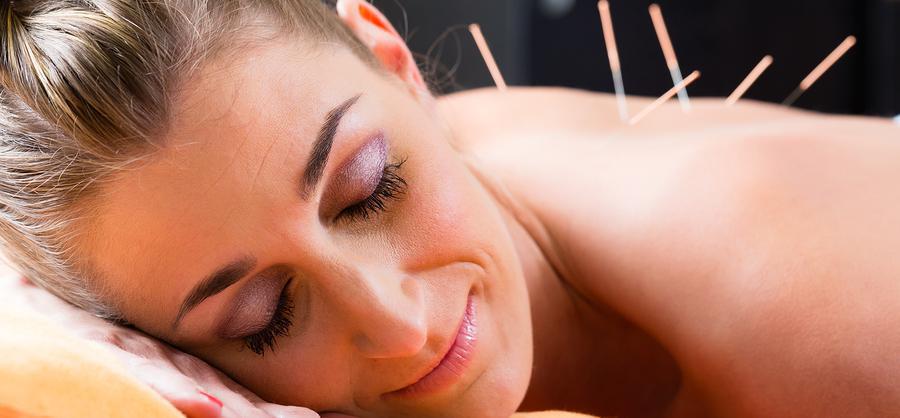In recent decades, more individuals seeking medical treatment or preventive care have turned to Eastern medicinal practices alongside traditionally prescribed Western medicine. When it comes to practices like acupuncture, this has led to many questions, such as, "What is acupuncture?" and "Can it help with my particular ailments?"
Let's explore the theory behind acupuncture, what it does, and how this treatment could help you.
What Is Acupuncture?
The National Center for Complementary and Integrative Health defines acupuncture as a traditional Chinese medical practice where "practitioners stimulate specific points on the body—most often by inserting thin needles through the skin." Practitioners tactically insert these needles based on "points of the body following the meridian and collateral theories of traditional Chinese medicine," per the Association of Traditional Chinese Medicine and Acupuncture UK (ATCM).
Traditional Chinese medicine (TCM) states that the human body contains a network of meridians and collaterals channels that distribute the body's qi ("chi," or energy), blood, and body fluid through circulation, according to the ATCM. By manipulating needles at certain points, called acupoints, practitioners can theoretically adjust the body's qi, blood, and body fluids to maintain or restore health and potentially treat a variety of illnesses.
While acupuncture has been part of traditional Chinese medicine for thousands of years, Western physicians have only recently begun to more deeply explore how they might be able to integrate acupuncture into their own prescribed treatments. Researchers have conducted studies to determine if acupuncture is effective for certain conditions, including a consensus conference convened by the National Institutes of Health in 1997.
What Is Acupuncture Used to Treat?
The NIH's consensus conference concluded that acupuncture's usefulness had been "complicated" by previous studies' parameters, which could skew results. However, even in 1997, the NIH confirmed "promising results" of acupuncture's effectiveness in treating conditions such as postoperative dental pain and adult postoperative and chemotherapy-related nausea and vomiting.
The NIH also named conditions where acupuncture "may be useful as an adjunct treatment or an acceptable alternative, or be included in a comprehensive management program." These include addiction, stroke rehabilitation, headache, menstrual cramps, tennis elbow, fibromyalgia, myofascial pain, osteoarthritis, lower back pain, carpal tunnel syndrome, and asthma.
More recently, a 2014 study published in The Journal of the American Medical Association reviewed 29 trials and found that acupuncture was associated with greater reductions in chronic pain. This included conditions like nonspecific musculoskeletal pain, osteoarthritis, chronic headaches, and shoulder, neck, and back pain.
Why Some Doctors Reject Acupuncture
These studies may be promising, but not all Western health practitioners are convinced of acupuncture's positive effects on the human body or validity as a treatment for specific conditions. Problems for acupuncture have risen from fundamental differences between Western and Eastern medical models, scientific theory, and conventional standardization required by modern Western medicine, according to the American Academy of Medical Acupuncture.
It's also critical that practitioners are well-trained and qualified to perform acupuncture treatments. While TCM practitioners have treated individuals with acupuncture techniques for centuries, inadequately trained practitioners could harm their clients, according to ATCM.
What You Should Do
If you're considering exploring the practice of acupuncture further, talk to your doctor about potential complications with any current medications or treatments you're undergoing. Your doctor may be open to using acupuncture in conjunction with current therapies if he or she believes the treatment can reduce pain or nausea.
However, if you intend to use acupuncture to reduce or replace prescription medications, it's critical to do so with your doctor's guidance. Stopping medications without a doctor's consent could negatively impact your response to treatments—acupuncture or otherwise. You should also inform your acupuncturist of any prescriptions you're currently taking. A trained and qualified acupuncturist may recommend you forgo the treatment if you take certain medications.
Acupuncture could have promising results if you're struggling with conditions involving pain or nausea. Have you ever wondered, "What is acupuncture?" keep these tips in mind and be sure to consult your doctor as you research acupuncture and whether this ancient treatment is right for you.




